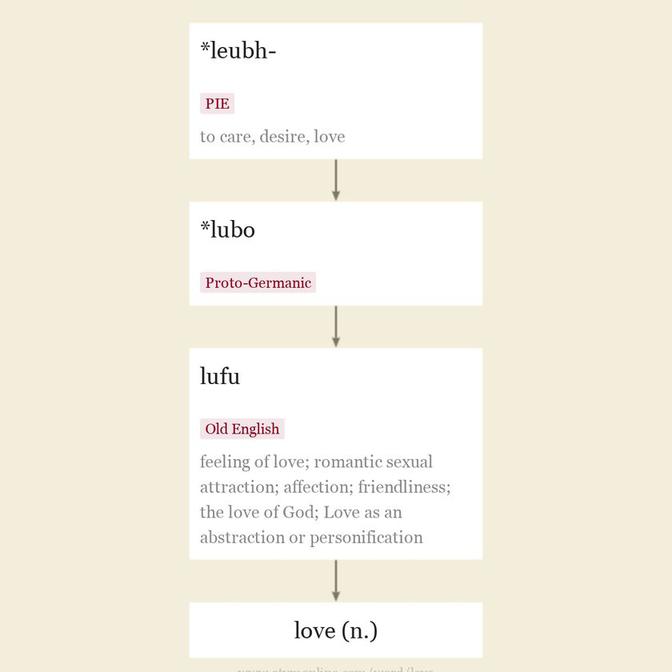love-child n.
"
Entries linking to love-child

Old English lufu "
The weakened sense "
To fall in love is attested from early 15c.; to be in love with (someone) is from c. 1500. To make love is from 1570s in the sense "
"Even now," she thought, "almost no one remembers Esteban and Pepita but myself. Camilla alone remembers her Uncle Pio and her son; this woman, her mother. But soon we shall die and all memory of those five will have left the earth, and we ourselves shall be loved for a while and forgotten. But the love will have been enough; all those impulses of love return the love that made them. Even memory is not necessary for love. There is a land of the living and a land of the dead and the bridge is love, the only survival, the only meaning." [Thornton Wilder, "Bridge of San Luis Rey," 1927]
Old English cild "
The wider sense "
The difficulty with the plural began in Old English, where the nominative plural was at first cild, identical with the singular, then c.975 a plural form cildru (genitive cildra) arose, probably for clarity's sake, only to be re-pluraled late 12c. as children, which is thus a double plural. Middle English plural cildre survives in Lancashire dialect childer and in Childermas.
Child abuse is attested by 1963; child-molester from 1950. Child care is from 1915. Child's play, figurative of something easy, is in Chaucer (late 14c.):
I warne yow wel, it is no childes pley To take a wyf withouten auysement. ["Merchant's Tale"]
updated on September 18, 2018